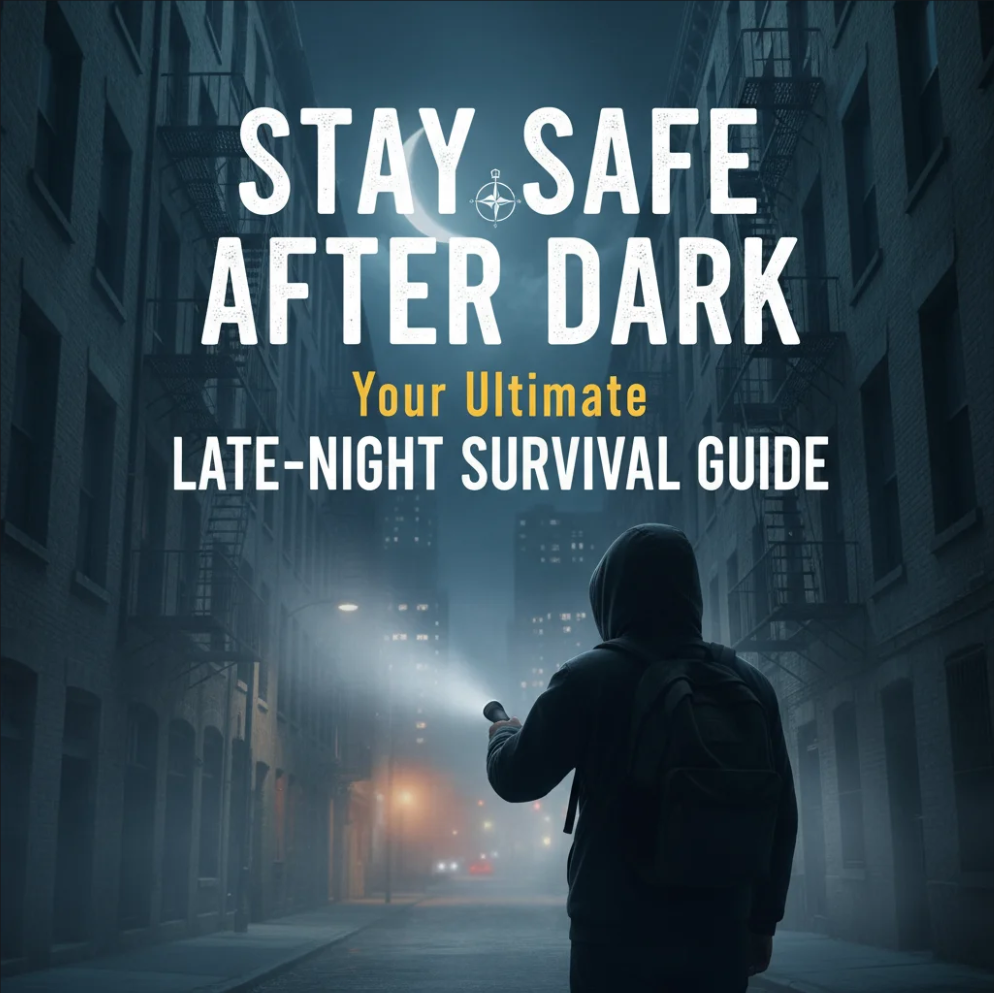
Navigating the city after dark can feel daunting, especially for those who work late, socialize at night, or commute during off-hours. Staying safe after dark requires awareness, preparation, and a few practical strategies. This guide provides actionable tips to help you protect yourself and stay confident during nighttime activities.
1. Plan Your Route in Advance
Before heading out, whether it’s a short walk or a late-night commute, plan your route carefully. Opt for well-lit streets and main roads rather than shortcuts through alleys or deserted areas. Mapping your route ahead of time helps reduce stress and makes you less vulnerable.
2. Stay Visible and Alert
- Wear reflective or bright clothing: This increases your visibility to drivers and other pedestrians.
- Keep headphones volume low: Being aware of your surroundings is crucial. Avoid distractions that prevent you from noticing potential threats.
- Walk confidently: Your body language signals awareness and confidence, deterring potential trouble.
3. Use Trusted Transportation Options
If walking alone feels unsafe, rely on reputable transportation options:
- Ride-hailing apps or taxis: Ensure the driver and car match the app’s information before getting in.
- Public transport: Stick to well-lit platforms and avoid empty cars late at night.
- Carpooling with friends: Traveling with someone you trust adds an extra layer of safety.
4. Personal Safety Tools
Carrying safety tools can boost your confidence and provide protection if needed:
- Personal alarms or whistles: Can attract attention quickly in emergencies.
- Pepper spray or self-defense tools: Check local laws before carrying.
- Phone with emergency contacts ready: Keep a list of trusted contacts for quick access.
5. Stay Connected
Let someone know your plans, especially when traveling alone. Share your location with a friend or family member and check in when you arrive safely. Modern apps allow real-time location sharing, which is a practical safety measure.
6. Trust Your Instincts
If a situation feels off, trust your gut. Leave the area immediately, seek a safe location, or call for help. Avoid taking unnecessary risks, even if it seems inconvenient.
Conclusion
Staying safe after dark doesn’t mean living in fear—it’s about preparation, awareness, and making smart choices. By planning your route, staying alert, using trusted transportation, and carrying safety tools, you can confidently navigate late-night activities. Your safety is always worth the extra effort.



